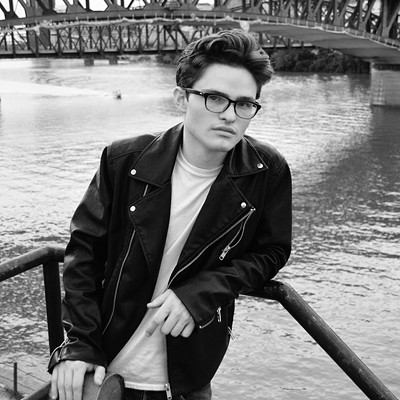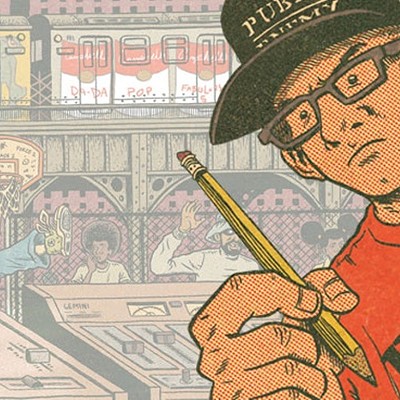As artistic director of the Pittsburgh Camerata — a small choral ensemble specializing in Renaissance, baroque and 20th-century works — Rebecca Rollett likes to present at least one unconventional concert per season. In the past, the choir has incorporated literary readings and participation by costumed actors. But this time, Rollett says, "I wanted to do something a little more dramatic. And I realized, if I want to have something dramatic, I have to have something written."
For that, she commissioned playwright Patrick Shaw, a National Playwrights Conference semifinalist and son of one of the choir members. Through a series of Skype brainstorming sessions, Rollett and Shaw developed Apollo Unbound, the story of a Renaissance-era composer named Milton Payne (played by actor David Santiago), who is commissioned by Queen Elizabeth I to write a piece commemorating the defeat of the Spanish Armada.
"But," Rollett explains, "we threw in the enormous anachronism that, as sort of a promotional device, the composer decides to finish writing the piece while live-streaming on the Internet." The choir serves as a kind of Greek chorus, offering the composer help, inspiration and voices.
Rollett uses music by Renaissance composer Robert Parsons, along with pieces by some of his contemporaries; she made a few adjustments to the original lyrics in order to fit the story. For example: in Parsons' piece "Pour Down, You Powers Divine," a woman pleads with her former lover, Pandolpho — a name which Rollett easily swapped for Apollo, the deity to whom Payne calls out in search of a muse.
Shaw suggested that they offset the somber nature of the music, most of which was written for the church, with comedy. If the live-streaming-in-1588 plot point doesn't hint clearly enough at the show's lightheartedness, much humor is derived from Payne's exaggerated public persona, and his dealings with his frustrating adolescent son, played by Adam Hagenbuch.
"The original idea was an exploration of the creative process, and that's still what the show is — it just happens to have taken a comedic form more than a dramatic one," Rollett says. "That's really the heart of commissioning something: people come back with things you couldn't have imagined."

















